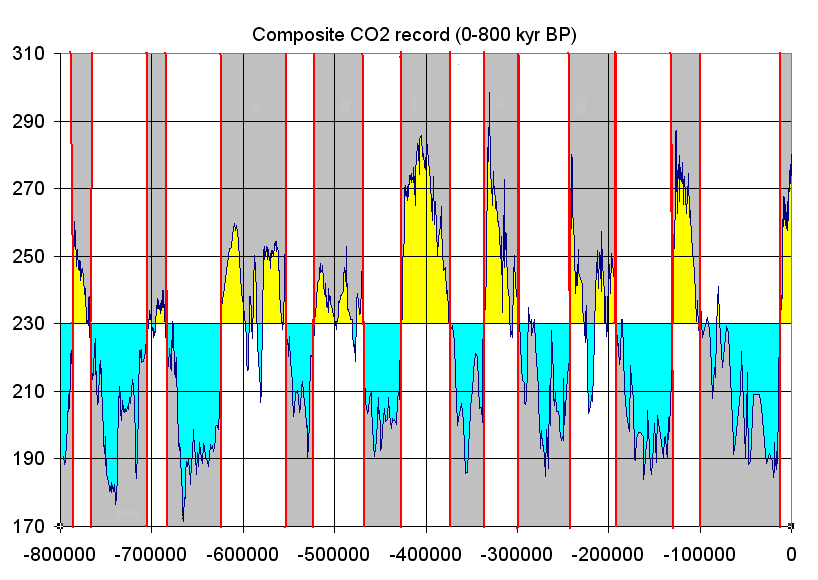Glaciation on:
[Wikipedia]
[Google]
[Amazon]
A glacial period (alternatively glacial or glaciation) is an interval of time (thousands of years) within an ice age that is marked by colder temperatures and glacier advances. Interglacials, on the other hand, are periods of warmer climate between glacial periods. The Last Glacial Period ended about 15,000 years ago. The Holocene is the current interglacial. A time with no glaciers on Earth is considered a greenhouse climate state.
 Within the Quaternary, which started about 2.6 million years before present, there have been a number of glacials and interglacials. At least eight glacial cycles have occurred in the last 740,000 years alone.
Within the Quaternary, which started about 2.6 million years before present, there have been a number of glacials and interglacials. At least eight glacial cycles have occurred in the last 740,000 years alone.
Quaternary Period
 Within the Quaternary, which started about 2.6 million years before present, there have been a number of glacials and interglacials. At least eight glacial cycles have occurred in the last 740,000 years alone.
Within the Quaternary, which started about 2.6 million years before present, there have been a number of glacials and interglacials. At least eight glacial cycles have occurred in the last 740,000 years alone.
Penultimate Glacial Period
The Penultimate Glacial Period (PGP) is the glacial period that occurred before the Last Glacial Period. It began about 194,000 years ago and ended 135,000 years ago, with the beginning of the Eemian interglacial.Last Glacial Period
The last glacial period was the most recent glacial period within the Quaternary glaciation. It occurred in thePleistocene
The Pleistocene ( , often referred to as the ''Ice age'') is the geological epoch that lasted from about 2,580,000 to 11,700 years ago, spanning the Earth's most recent period of repeated glaciations. Before a change was finally confirmed in ...
, which began about 110,000 years ago and ended about 15,000 years ago. The glaciations that occurred during the glacial period covered many areas of the Northern Hemisphere and have different names, depending on their geographic distributions: ''Wisconsin'' (in North America), ''Devensian'' (in Great Britain
Great Britain is an island in the North Atlantic Ocean off the northwest coast of continental Europe. With an area of , it is the largest of the British Isles, the largest European island and the ninth-largest island in the world. It i ...
), ''Midlandian'' (in Ireland
Ireland ( ; ga, Éire ; Ulster Scots dialect, Ulster-Scots: ) is an island in the Atlantic Ocean, North Atlantic Ocean, in Northwestern Europe, north-western Europe. It is separated from Great Britain to its east by the North Channel (Grea ...
), ''Würm'' (in the Alps), ''Weichsel'' (in northern Central Europe), ''Dali'' (in East China), ''Beiye'' (in North China), ''Taibai'' (in Shaanxi) ''Luoji Shan'' (in southwest Sichuan
Sichuan (; zh, c=, labels=no, ; zh, p=Sìchuān; alternatively romanized as Szechuan or Szechwan; formerly also referred to as "West China" or "Western China" by Protestant missions) is a province in Southwest China occupying most of the ...
), ''Zagunao'' (in northwest Sichuan
Sichuan (; zh, c=, labels=no, ; zh, p=Sìchuān; alternatively romanized as Szechuan or Szechwan; formerly also referred to as "West China" or "Western China" by Protestant missions) is a province in Southwest China occupying most of the ...
), ''Tianchi'' (in the Tian Shan) ''Jomolungma'' (in the Himalayas), and ''Llanquihue'' (in Chile). The glacial advance reached the Last Glacial Maximum about 26,500 BP. In Europe
Europe is a large peninsula conventionally considered a continent in its own right because of its great physical size and the weight of its history and traditions. Europe is also considered a subcontinent of Eurasia and it is located entirel ...
, the ice sheet reached Northern Germany. Over the last 650,000 years, there have been on average seven cycles of glacial advance and retreat.
Next glacial period
Since orbital variations are predictable, computer models that relate orbital variations to climate can predict future climate possibilities. Work byBerger
Berger is a surname in both German and French, although there is no etymological connection between the names in the two languages. The French surname is an occupational name for a shepherd, from Old French ''bergier'' (Late Latin ''berbicarius'', ...
and Loutre suggests that the current warm climate may last another 50,000 years. The amount of heat trapping (greenhouse) gases being emitted into the Earth's oceans and its atmosphere may delay the next glacial period by an additional 50,000 years.
References
External links
{{DEFAULTSORT:Glacial PeriodPeriod
Period may refer to:
Common uses
* Era, a length or span of time
* Full stop (or period), a punctuation mark
Arts, entertainment, and media
* Period (music), a concept in musical composition
* Periodic sentence (or rhetorical period), a concept ...